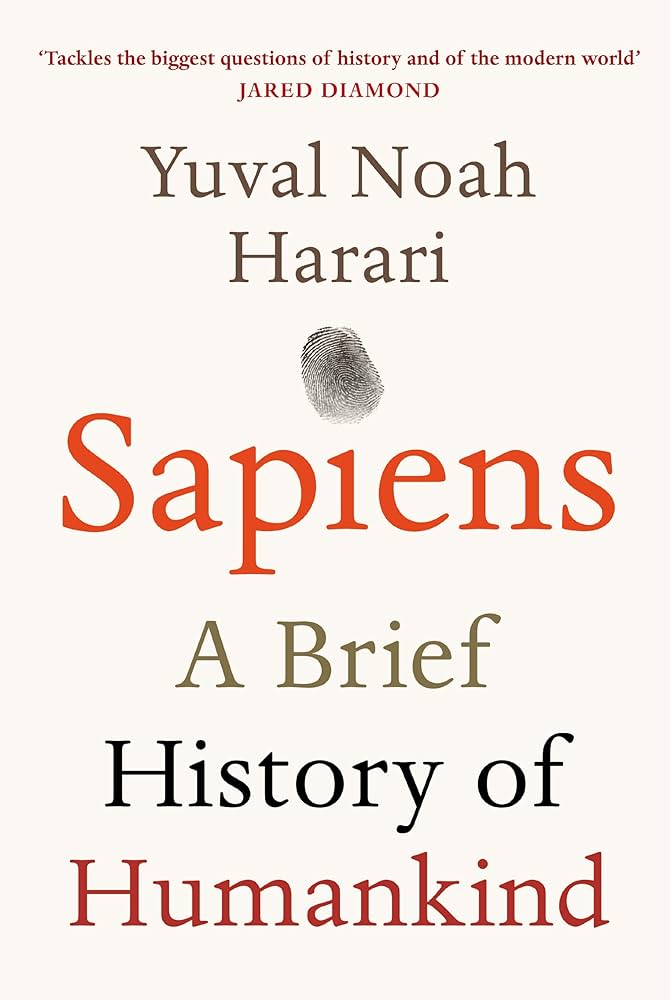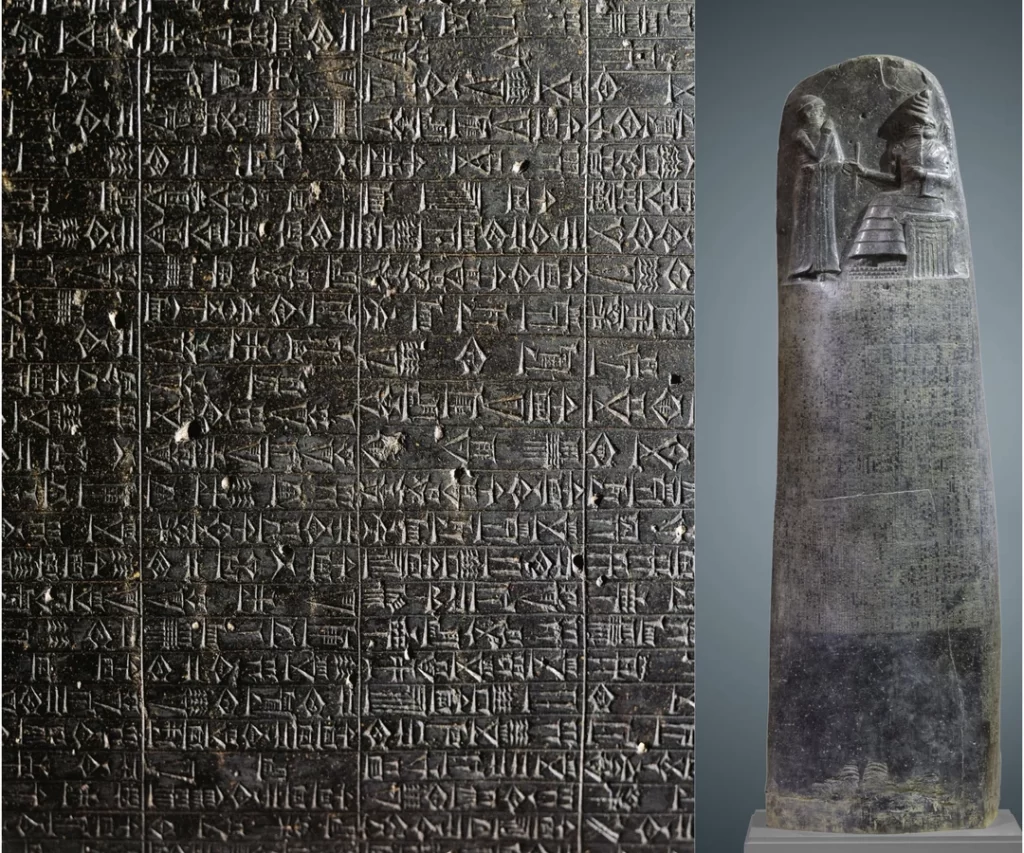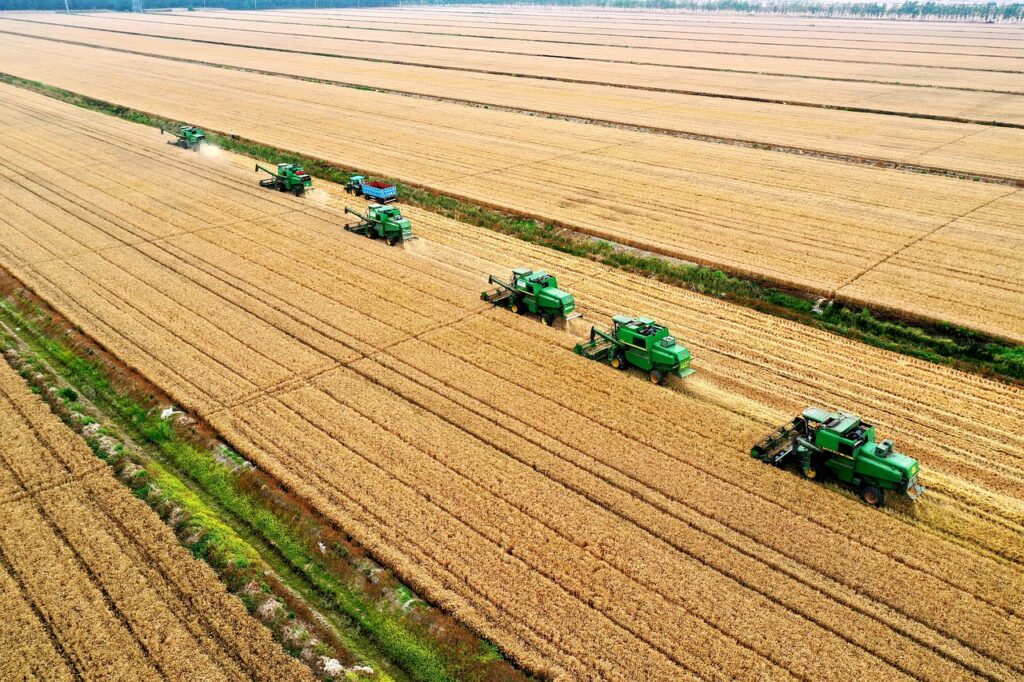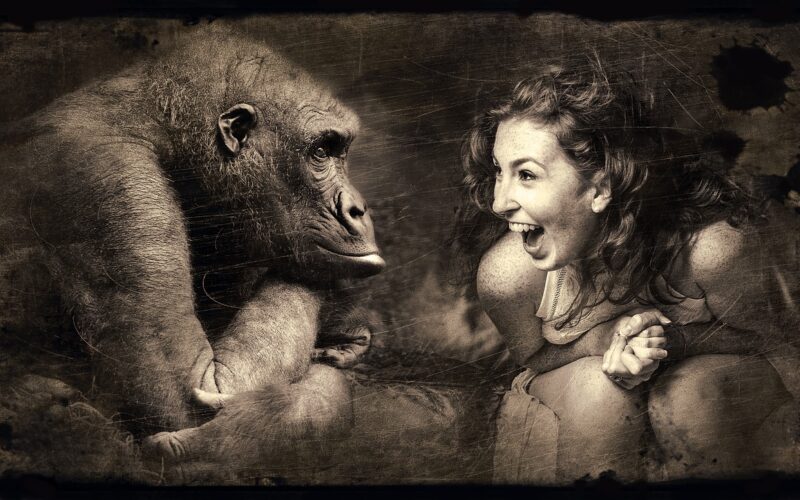We study history not to know the future but to widen our horizons, to understand that our present situation is neither natural nor inevitable, and that we consequently have many more possibilities before us than we imagine.
Yuval Noah Harari
Author Yuval Noah Harari’s bestselling book Sapiens is about the history of humankind and provides a new perspective on human life and development. I thought it was worth summarizing:
The forefathers of Homo sapiens domesticated fire at least 300,000 years ago. This led to the advent of cooking which allowed humans to eat more kinds of food, to devote less time to eating, to make do with smaller teeth and some say opened the way to the further growth of the brain. Fire also opened the first significant gulf between Homo species and other animals allowing control of an obedient and powerful force.
Since then, three important revolutions have shaped the course of history. The Cognitive Revolution starting about 70,000 years ago. The Agricultural Revolution about 12,000 years ago and the Scientific Revolution which started 500 years ago.
Homo sapiens spread from East Africa about 70,000 years ago and within a relatively short span of time had settled in most parts of the world.
These wandering bands of Homo sapiens were the most destructive force the animal kingdom had ever produced. Some 45,000 years ago Homo sapiens had spread to the Australian continent. Their arrival brought about the extinction of Australia’s megafauna. An event that was to be repeated on their arrival in North and South America, and then various remote islands notably Madagascar and New Zealand.

The spread of Homo sapiens was in part enabled by the invention of boats, oil lamps, bows and arrows and needles as well as religion, commerce and social stratification. These accomplishments were most likely achieved by genetic mutations that enabled Homo sapiens to think and communicate in unprecedented ways, namely the development of sophisticated language, and consequently the ability to imagine. Common myths were (and continue to be) created that allowed greater collective cooperation, far outstripping any other animal species. A key outcome of language and cooperation was the initiation of trade and commerce.
The transition to agriculture began slowly around 9500 BC in restricted geographical areas. Wheat and goats were domesticated first, then peas/lentils in 8000 BC, olive trees by 5000 BC, horses by 4000 BC and grapevines by 3500 BC. Today, ninety percent of the calories that feed humanity come from the plants domesticated before 3500 BC.
Although it is debatable whether the Agricultural Revolution benefitted the majority of individuals, it did provide more food per unit of territory and enable Homo sapiens to multiply exponentially.
The Agricultural Revolution made the future far more important than it had ever been before. Agriculture is based on seasonal cycles and is vulnerable to droughts, floods and pestilence. So farmers produced more than they consumed to build reserves. The food surpluses coupled with better transport enabled more and more people to cram together into villages, then towns and cities, all joined together by kingdoms or commercial networks. This required cooperation and trust, which was developed through the belief in shared myths.

Hummurabi’s code.
For example, Hammurabi’s code in ancient Babylon asserts a social order rooted in universal principles of justice dictated by the gods. The code divides people into three classes and two genders and establishes a strict hierarchy within families.
Hammurabi’s code as with other ‘myths’ through the ages (including the myth of human rights) is based on the premise that if all subjects accepted their position in the hierarchy, the empire’s inhabitants would be able to cooperate effectively. Their society could then produce enough food for its members, distribute it efficiently, protect itself against enemies, and expand its territory to acquire more wealth.
However, when analysed with cold logic, Hammurabi’s code and all other myths have no objective validity.
Factors which prevent us from realising that the stable societal order organising our lives is imaginary is because we are born and grow up in a world dominated by the prevailing myth. In the modern world, the education system and media reinforces it and armies, police, courts and priests enforce the imagined order. This system develops in us artificial instincts which we call ‘culture’.
If through some effort someone succeeds in freeing themselves from the grip of the imagined order, they are just one person. To change the imagined order they must ultimately convince millions of strangers to cooperate with them.
The first millennium BC witnessed the appearance of three universal orders that broke the old geographic division of ‘us’ and ‘them’ and allowed people to interact with an even broader group of strangers. They were: the monetary order; the imperial order; and the religious order.
Money is the most universal and most efficient system of mutual trust ever devised. Why do I believe in the cowry shell or gold coin or dollar bill? Because my neighbors believe in them. And we all believe in them because our king believes in them and demands them in taxes, and our priest receives them in donations. But the truth is that cowry shells and dollars have value only in our common imagination.
Money has enabled millions of strangers to cooperate in trade and industry. But more was needed to create unifying orders. Here the role of empires was important.
Most humans in the last 2500 years have lived in empires. Empire is generally a very stable form of government. They have been toppled only by external invasion or by a split within the ruling elite. The long reign of empires has led to greater unification of cultures and societies.
Another order that brought greater unification among far flung societies was religion. Religion is a system of human laws that is founded on the belief in superhuman laws.
Polytheist religions like those in ancient Greece and Rome believed the world was controlled by a group of powerful gods – fertility god, rain god, war god etc. Christianity was the first successful monotheist religion followed by Islam. Monotheists have tended to be far more fanatical and missionary than polytheists. Because monotheist religions believe in the one and only god, they have been compelled to discredit all other religions.
The Scientific Revolution starting some 500 years ago was launched by the discovery that humans do not know the answers to their most important questions.
Captain James Cook’s Pacific expedition of 1768 brought back enormous quantities of astronomical, geographical, metrological, botanical, and anthropological data, allowing major contributions in these fields and sparking the imagination of Europeans. But in the century following Cook’s visit, the most fertile lands of Australia and New Zealand were taken from the previous inhabitants and the native populations were decimated. The Scientific Revolution and modern imperialism were inseparable.
Behind the meteoric rise of both science and empire was one particularly important force: capitalism.
For thousands of years humankind was beholden to an uncertain future. But with the Scientific Revolution and the exploitation of modern imperialism came a greater trust in the future. Thus was born ‘credit’ which enables us to build the present at the expense of the future. It was a reinforcing cycle: Trust created credit; credit brought economic growth; growth strengthened the trust in the future, thus creating more credit.
This capitalist thinking was more prevalent in the West than in the Eastern courts. Thus the European conquest of the world was financed through credit rather than taxes. The colonisation and exploitation of the East Indies by the Dutch and of India by the British, not to mention the Atlantic slave trade, was achieved through private financing which yielded tremendous profits.
Capitalism evolved into an ethic whose principal tenet is that economic growth is the supreme good because justice, freedom and even happiness depend on growth.
This explains why banks and governments continue to print money because everyone is terrified that the growth in the economy may stop. Everything depends on new discoveries in fields like biotechnology and artificial intelligence to create new profits and continue the trust in the system.
Yet economic growth also requires energy and raw materials.
The harnessing of cheap energy through the use of steam generated by burning coal, kicked off the Industrial Revolution in the 18th Century. The result was an explosion in human productivity, not least in agriculture where industrial production of plants and animals boomed. In the past, farmer peasants represented 90 percent of the population. Today in the USA only 2 percent of the population works in agriculture and produces enough food to feed itself and export surpluses.

The modern capitalist economy must constantly increase production if it is to survive. To ensure sufficient demand for growing products the ethic of consumerism is needed. The capitalist and consumerist ethics are two sides of the same coin. The supreme commandment of the rich is ‘Invest!’ while that of the rest of us is ‘Buy!’
Since 1945 the world has been relatively free of war compared to earlier historic periods. It is rare to see a state invade other states in order to conquer and swallow them up [written before the Russian invasion of Ukraine, and the escalation of China-Taiwan tensions]. The reason is because the price of war has soared, its profitability has declined and peace has become more lucrative. Part of the ‘price’ of war is the threat of nuclear annihilation, something that did not exist pre-1945.
Today the world is home to 7 billion humans; a ten-fold increase on 1700 when it was 700 million people. The combined mass of people world-wide corresponds to about 300 million tons; more than the combined mass of all surviving large wild animals at less than 100 million tons. Yet the mass of all industrialised farmyard animals is larger again at 700 million tons. So while there are about 80,000 giraffes in the world, there are 1.5 billion cattle. The forces of humankind have really taken over the world.
To house this number of people and cultivated plants and animals, humans have cut down forests, drained swamps, dammed rivers, flooded plains, laid down millions of kilometres of railroad and road pavement, and built skyscraper metropolises with the aid of cheap fossil fuels. In other words, the world has been exploited and moulded to fit the needs of Homo sapiens.
Will the future see further destruction of what remains of natural habitat? Will ecological turmoil endanger the survival of Homo sapiens itself? Could global warming, rising oceans and widespread pollution see a spiralling race between human power and human-induced natural disasters?
Harari does not try to answer these questions, but he has already made a strong case that the answer lies with the myths the majority of humanity wants to believe in.
The reviewer is the co-author of Court of the Grandchildren, a novel set in 2050s America.
Main picture credit: Stefan Keller via Pixabay.
Hummarabi’s code photo credit: Agmm-cr at Reddit ArtefactPorn
Crop field photo credit: flydrag via Pixabay
For more (shorter) posts on this theme:
History! Read it and weep! – The transitions between dominant empires over the last five hundred years.
Every time history repeats the price goes up – Why societies collapse.
Eight lessons of history – The distillation from a lifelong study of human civilizations.
Fall of Civilizations – Case studies through the ages.
Technology is our god – Is economic growth a good thing?
Shocking secrets about food – The constraints on food production.
